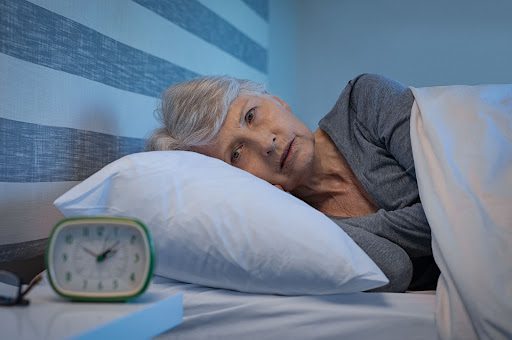The COVID-19 pandemic has provided unique opportunities to learn about the impacts of living with a dynamic chronic stressor. Obsessive-compulsive disorder and sleep disorders such as insomnia go hand-in-hand, but what effect has the pandemic had on these conditions?
Read on to learn about the interactions of OCD and insomnia. Then review the impact of the COVID-19 pandemic on individuals coping with OCD. Finally, learn how the link between OCD, insomnia, and COVID-19 can help individuals prepare for future chronic stressors.

In understanding the processes that drive the development of OCD, several connections have been made between OCD and sleep issues, mood, and circadian rhythm. Insomnia is a common complaint for individuals with OCD, and multiple factors may contribute to its emergence.
Because OCD is a lifelong condition, understanding how chronic stressors impact sleep disturbances has long-term implications for symptom management and OCD insomnia treatment. One study examined the relationship between insomnia and OCD in the context of the pandemic. Participants from a 2016 insomnia study were contacted after the first COVID-19 outbreak to report their symptoms.
After the first outbreak, pre-pandemic increases in insomnia predicted two significant OCD symptom changes.
The presence of insomnia or other disturbed sleep patterns may point to a vulnerability to the core features of OCD, obsessive thoughts, and repetitive behaviors. After the first COVID-19 outbreak, researchers observed a slight but notable increase in overall OCD symptoms in participants.
This effect may be explained by the dysregulating impacts of poor sleep on mental clarity and emotional reactivity. When an overwhelming stressor such as a pandemic is introduced, it can hinder an individual’s ability to manage unhelpful repetitive thoughts and behaviors.
As the first outbreak of the COVID-19 pandemic unfolded worldwide, worries about finances, safety, and social isolation contributed to a steep increase in insomnia. But surprisingly, study participants with OCD saw small improvements in their sleep during this period. Decreased insomnia may have been due to a sense of safety derived from stay-at-home orders and reduced schedule demands of this early phase.
The findings from the COVID-19 insomnia study provide insight into how a pandemic impacts OCD-related insomnia. But can this study provide us with valuable information beyond this (albeit incredibly triggering) period in history?
Once OCD has been identified, individuals manage their condition for a lifetime. A global pandemic is not a common or necessarily predictable occurrence, but other chronic stressors may have a similar detrimental impact. For individuals with OCD, virus outbreaks impact physical health and exacerbate distressing symptoms such as insomnia. Preparing for chronic stressors is prudent for maintaining quality of life and reducing distress.

Does OCD cause insomnia? Evidence does not show direct causation, but there are significant links. OCD and sleep disorders share several risk factors, such as having a later bedtime and chronic life stressors. With careful observation, individuals can learn more about their OCD symptoms and how to cope with large-scale stressors in the future.